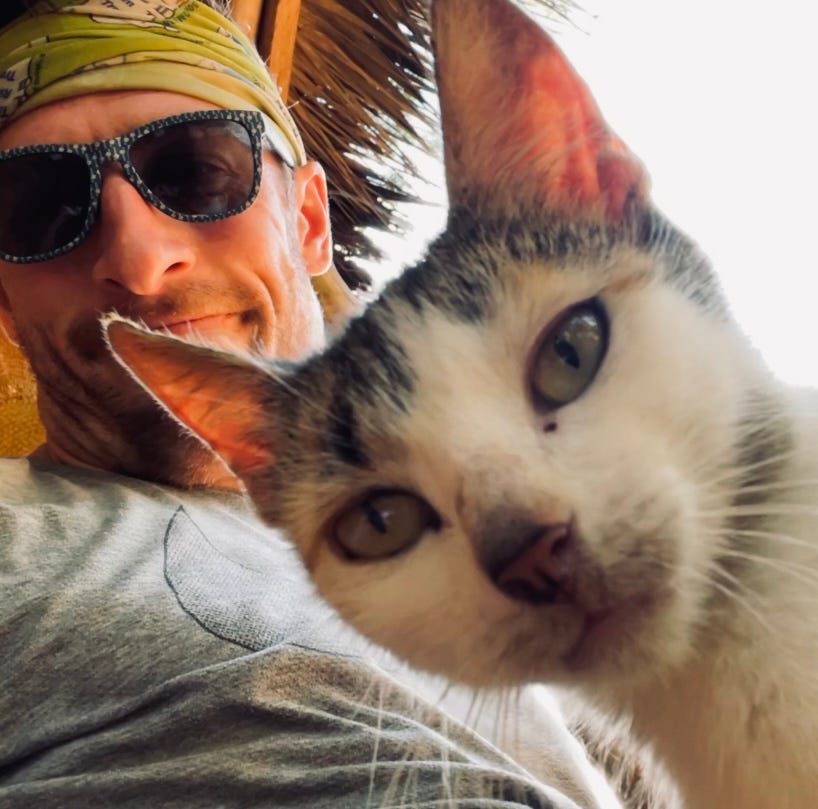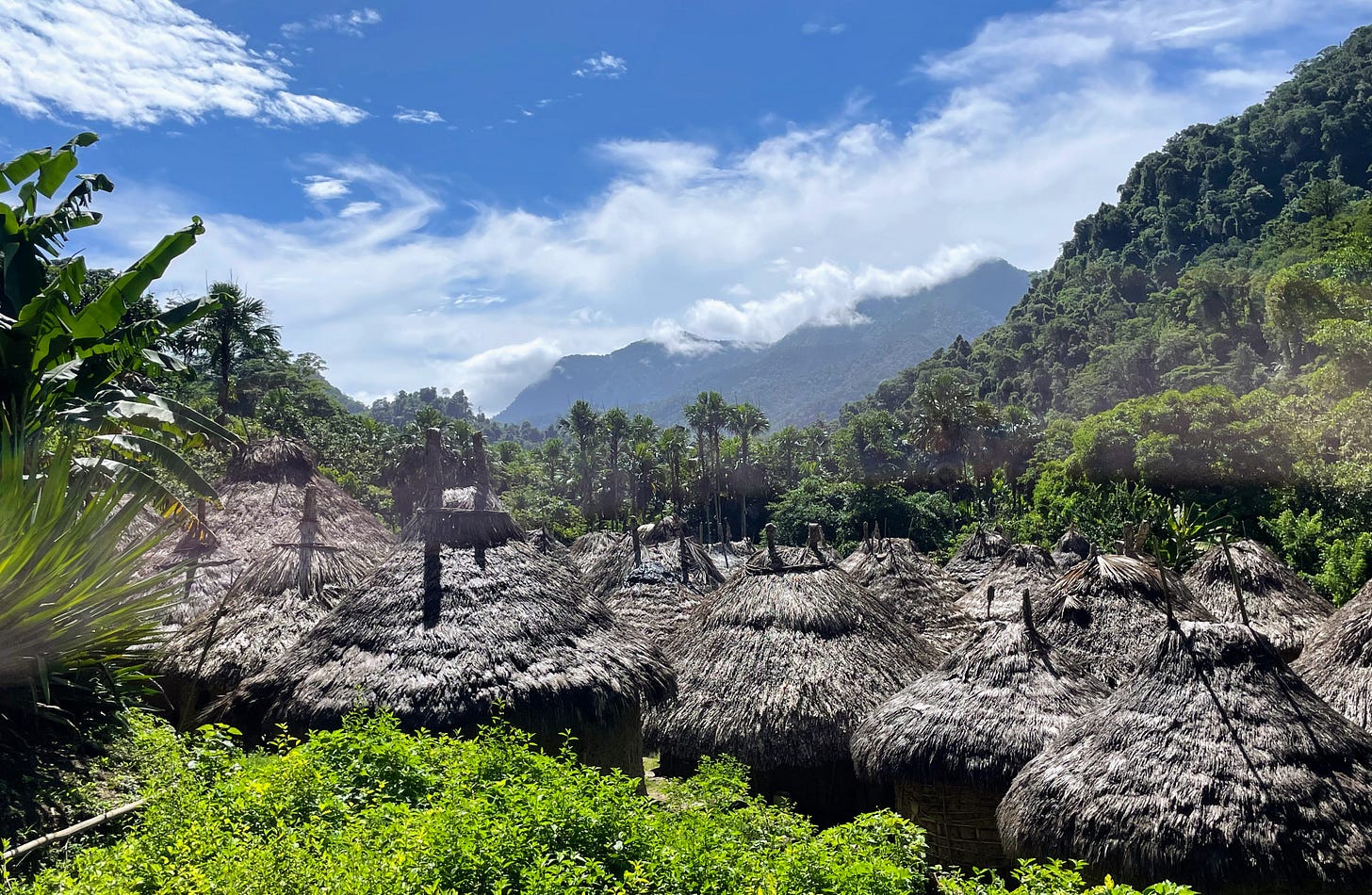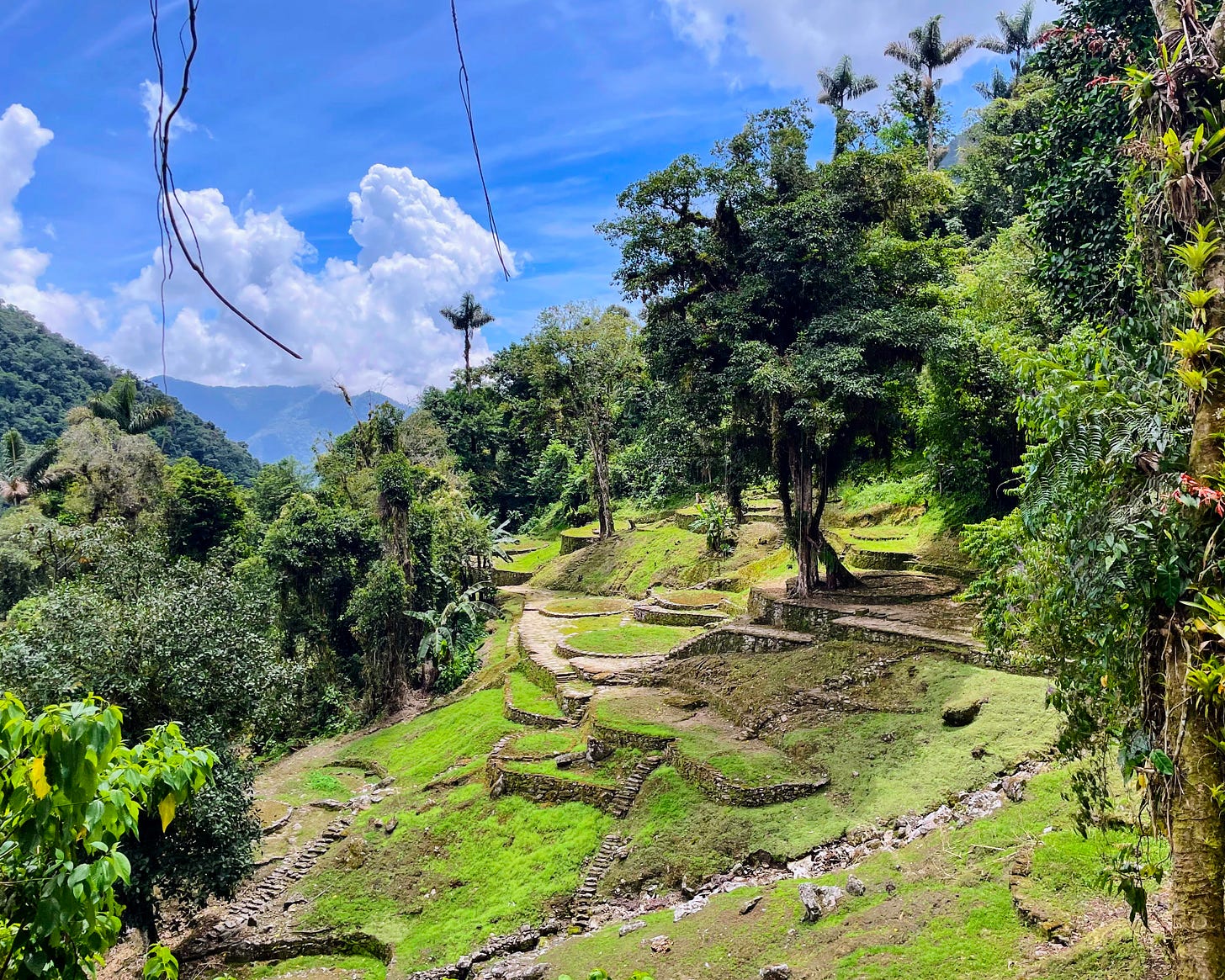Can We Sigh When the Disconnected Come Online?
We can wish “traditional” spaces remain unchanged. But what about those living in them?
We may not like that the Kogi, Marubo, and countless other isolated communities around the world are rapidly gaining access to all the wonders and horrors of the internet.
But it’s not our place to worry about it.
A few weeks ago, I saw this post by Kara Swisher:
The post links to an excellent, long New York Times report exploring the many impacts — good, bad, and in-between — of the arrival of high-speed internet on the Marubo people, an isolated tribe deep in Brazil’s Amazon.
My initial impulse was to agree with Ms. Swisher, as I usually do with her tech industry critiques. “Sigh,” another heretofore untouched corner of the world sucked into the same shitshow we’ve all wallowed in the past two decades. “Sigh,” the Marubo youth will now have greater interest in the wide outside world, which will probably impel the same rural depopulation and linguistic extinction already happening elsewhere. (And maybe the youth will soon wish to give up farming, fishing, and other traditional practices to become influencers, just like so many other young people elsewhere, too.) “Sigh,” another place unique in all the world bites the dust, and starts to look a lot like the rest of it.
“Sigh,” all of this sounds awful, and so of course Elon Musk was involved.
I felt all these sighs when I saw the post, and I feel them now. But something in these sighs stuck in my craw. Something I’ve had a hard time putting my finger on.
And it’s that I don’t believe it’s our place to sigh about any of this.
Now, I don’t mean to call out Ms. Swisher specifically. But I think this “sigh” is something felt by many, and worth questioning.
I’ve personally thought about this a lot. As I’ve written previously, I spent years at Google working on projects aimed at expanding internet access to the “Next Billion Users.” I began at a time when the promise of total global internet coverage was seen, by many at least, as an unalloyed good.
But the question of whether or not this was so began to gnaw at me. It was easier to think the internet was a force for good back when Buzzfeed quizzes were fun, when Twitter had more weird jokes than white nationalism. Before we realized social media was useful not only for finding like-minded people for film and book discussions, but also storming the Capitol. (Of which I guess there’s now a board game? 🫠)
Even if global internet access wasn’t viewed as an untarnished good, I think many at least saw it as inevitable. Friends and coworkers would occasionally argue the value of this, pointing out the use for emergency communications alone. (Though the advent of consumer-grade satellite transceivers has evaporated even this rationale — and services like Starlink may soon make the discussion moot, anyway.)
I remember camping in California, perhaps a decade ago, already thinking ahead to the time when we’d look wistfully back on the days when we could escape from the digital world. This seems silly to me now — I don’t think it’s inevitable we’ll one day have disconnected spaces, and do think we should strive to maintain them.
But that’s in America, where a few disconnected spaces represent breaks from a digital world in which we’re otherwise drowning. A quiet room in a concert hall, a city park in chaotic Manhattan.
And more importantly, it’s our space, in America. It’s our own experience of the internet — and our own choice whether or not to allow it wherever we go.
I thought much about this a year ago when I joined a four day hike to Colombia’s Ciudad Perdida, the “Lost City” of the Tairona people that predates Machu Picchu. The trek took us deep into the territory of the Kogi and Wiwa tribes, descendants of the Tairona who have lived, until very recently, in relative isolation for over 500 years.
We hiked most of the first day on a dirt path suitable only for rugged motorized dirt bikes, and ten miles the second day on a trail so steep, muddy and full of roots that it could only be traversed on foot.
So I was astonished on our second night, around twenty miles from the main road where we’d started, to see a Kogi man watching TikTok on his phone.

I was surprised they’d managed to get internet access that deep in the jungle. And I’ll admit that I thought something like “sigh” then, too.
The word Kogi means “jaguar” in the tribe’s language, and the animals, for now, still roam the jungles near the people sharing their name. I wondered, and wonder still, about the impacts of the newly-arrived internet on Kogi youth over the next few years, and generations to come. Silly TikTok dances, YouTube and Pornhub, the slick fashion and food of Instagram influencers flaunting their lives in Bogota and Lima and Rio. I wonder how likely the young people coming online there today might be to live deep in the jungle for another generation, or two, or three. To practice the rituals, build the homes, and speak the language of their grandparents — all until now isolated, and unique, in all the world.
But later that night I spotted one of the men guiding the trip in a hammock, using his phone to video chat with his family. The guides usually spend only a single night at home between trips, and I can only assume they’re dead-tired when they do. I had no desire to use the internet during my four day reprieve from news, messages, and notifications, but I imagine they were happy to have it.
So the internet isn’t, of course, an untarnished good — but it is a good, some of the time. There’s TikTok and porn and disinformation, the methamphetamine rush of the modern digital world. I’ve lately come to think of the internet as effecting a kind of fast forward on otherwise inevitable globalizing forces, and imagine it must hit communities like the Kogi like a freight train. And indeed, Brazil’s Marubo tribe seems to find it challenging to deal with the high-speed, app-centric internet without the training wheels of the web’s more beginner-friendly early days.
But of course with all the terrors of digital modernity come some blessings. The internet can bridge individuals to education, health information, economic opportunity, increased political engagement, and more. And Starlink is probably the first phone communication, at all, these communities have ever had. Most of us have called, texted, and FaceTimed friends and family for so long we forget it’s special, but it is. “It’s already saved lives,” says a Marubo leader in the New York Times piece, citing the tribe’s newfound ability to contact a helicopter in health emergencies.
It’s easy to romanticize the uniqueness of isolated tribes. But even if some of that economic opportunity pulls the Kogi or Marubo away from home, who are we to say they won’t be happier where they end up? Imagine a gay or trans teen in an otherwise conservative, isolated community finding others just like them in an online forum. And if a young girl with the kind of brain to brilliantly solve the climate crisis lives deep in a Brazilian jungle, shouldn’t we hope she finds a way to do just that?
We shouldn’t even need to point to such lofty goals to “justify” the myriad downsides of joining the global internet community. I had the pleasure of meeting Professor Payal Arora (read her bio, she’s amazing) at a conference a few years ago, and she wrote a book that argues just this. Internet users in Western, wealthy societies use the internet primarily for entertainment, she argues, and who are we to say people outside these privileged spheres can’t do the same?
She writes:
“Statistics on browsing patterns confirm that the sites most frequented online, whether in a suburb in Ohio or a favela in Brazil, are social networking sites, pornography sites, romance sites, and gaming sites. People enjoy entertainment, romance, gaming, and sex, regardless of their economic status. Thus, it is no wonder that pleasure is at the forefront of digital life. Although this is a readily accepted fact of contemporary digital life in the West, many still cling to the belief that the global poor are inherently different from typical users. Poverty, many assume, is a compelling enough reason for the poor to choose work over play when they go online.”

We may not like that the Kogi, Marubo, and countless other isolated communities are gaining access to all the horrors of the internet. But it’s not our place to worry about it.
Perhaps we in the West can help, without falling into colonial traps and tropes. The problems of today’s internet are largely, after all, ones we’ve helped create. Meta already showed a gross inability to curb its app’s tragic consequences when Myanmar came online, and one hopes we might do better for future communities.
But we must also hope these places feel empowered to handle the sudden, almost violent shock of internet access in ways that benefit them. The Marubo leaders, for their part, “realized they needed limits. The internet would be switched on for only two hours in the morning, five hours in the evening, and all day Sunday.”
Because at the end of the day, we can bemoan how the internet is impacting our communities and cultures — but only our own. I can rail against the internet’s intrusion into American wilderness, but the Brazilian Amazon is far outside my wheelhouse.
Song of the Week: Linaje Originarios — CONDOR PASA. The indigenous rap group inspired others to form in Colombia. Like Embera Warra, who began rapping to protest the national government’s treatment of indigenous peoples.










The Internet might share the slogan of Colombia circa 2008: "el riesgo es que te quieras quedar"! Appreciate your critical introspection and reflection, lush photos, v. cool music-sharing... and both the suspense and ambivalence of the "Sigh" with respect for boundaries. Small world after all that some human behaviors such as using the Internet for entertainment are (nearly) universal -- and even that this behavior can be known, reminds of the lack of privacy in many under-regulated frontiers. It's interesting to learn of the assumption that Professor Arora and you so elegantly reveal as problematic and not rooted in reality (either of the user exp. nor social media companies' profits), that "Poverty, many assume, is a compelling enough reason for the poor to choose work over play when they go online" when the Internet, like television that offers education and entertainment, might be among the most accessible and affordable play some people in poverty have, in places including in the U.S., where folks are deprived of baseline infrastructure essential for outdoor play such as public transit or safe, clean green spaces. Not to discount chess & cards, drawing, music composition, hoops where there is a decent court, & similar! Of course people can theoretically do both, play and work on the Internet. More significantly this assumption seems to disregard the addictive-by-design nature of Internet entertainment and the sad fact that, maybe except for scamming, time (plus effort, and the Internet = work) cannot be easily converted to money by many people in poverty, no matter one's persistent use of the Internet for upskilling, education or job searching, in contrast to the ease of money converting to or buying/saving time, as Matthew Desmond emphasized. Perhaps the sovereign-mindful responsibilities of the US individuals and companies who have profited and continue to profit like kings from the Internet and apps, would be along the supply chain, to minimize environmental and social impacts of mining in Latin America and Africa for the many devices that enable the Internet and their original profits, and to take serious action on reducing e-waste? Alas our ability as individuals to call for such responsibility is limited. Sigh IRL! Ps. Kara Swisher can redirect her "Sigh" to the record of her attendance of the Billionaire's Dinner with Jeff Epstein among others, or "Sigh" in her obligation to explain how she as fantasy mayor of SF would supply universal decent housing for all, to make her "no more [street] camping" dictate reasonable. :) Thank you for writing!!